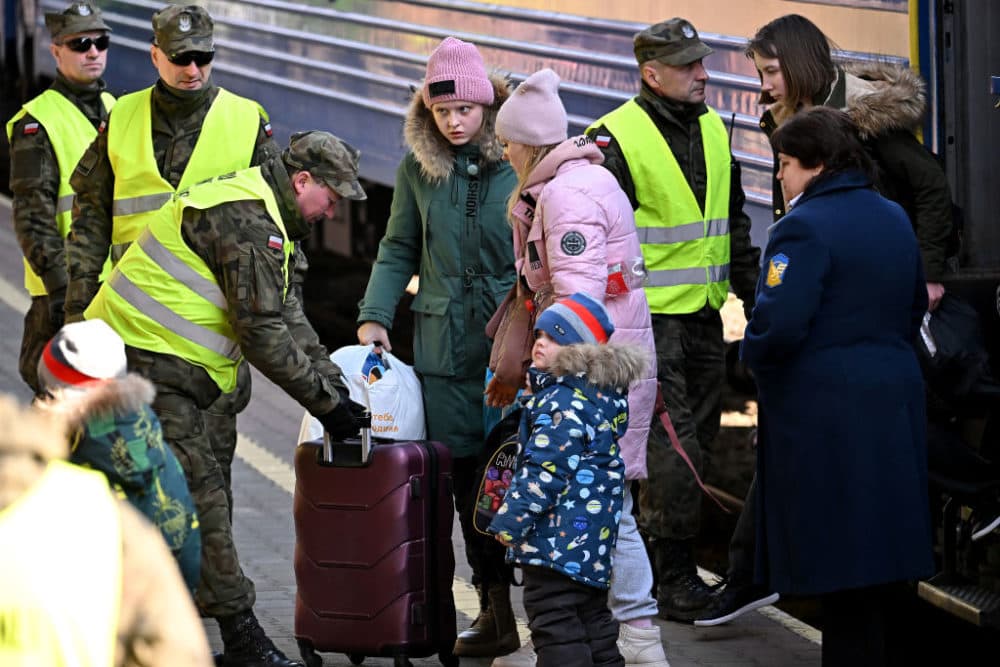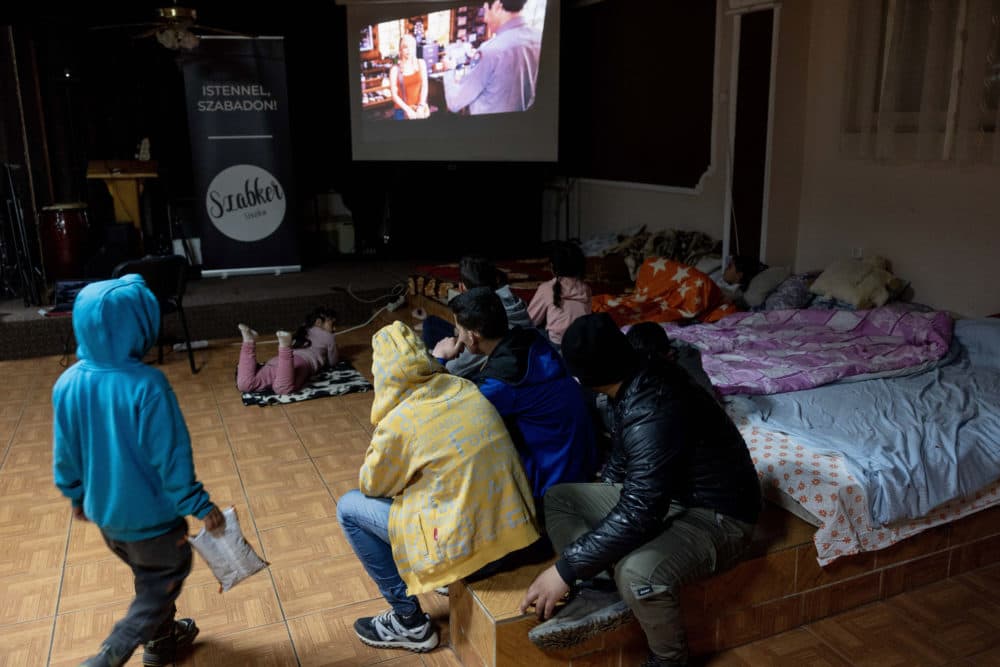Advertisement
Commentary
Millions of people have fled Ukraine. We need a plan to reunite families

A 4-year-old Ukrainian boy named Max wearing a black jacket and gray hat fled Russian attacks along with his mother, while his father stayed behind to fight. They plan to go to France to stay with a friend.
Russia’s invasion of Ukraine has forced Max and more than 3.2 million other refugees to flee to neighboring countries. Half of them are children. Ukrainian men, old and young, have been conscripted to fight. In some cases, women too have left their children at the border and returned to Ukraine to stand with their husbands and country. As a result, we are witnessing the largest wartime separation of families in living memory. Millions more will be displaced by Russia's maniacal aggression, unless it stops now.
I lead a global humanitarian organization, RefugePoint, that finds solutions for refugees and focuses on reuniting unaccompanied children with their parents, and family reunions.
With the fast-growing Ukrainian diaspora — 75,000 children are fleeing daily, and a growing number of them are unaccompanied — a primary question we are addressing is: What can be done to ensure that refugee families are able to reunite as quickly as possible when they try to do so?
If we don’t consider this now, it might not be easy — or even possible — for someone like Max’s dad to reunite with his family in the future. Family reunion is a right in international humanitarian law and embedded in immigration systems. But it often doesn’t work well, or at all.
There are already a number of efforts underway that will help.
The European Union has enacted the Temporary Protection Directive which allows Ukrainian refugees to move freely in the E.U. In the near term — the directive lasts for one year and can be extended — Ukrainian parents should be able to reunite with their families easily. (It may become more difficult at some point.)
Other countries outside the E.U. are welcoming Ukrainians too. England recently announced a new program enabling its citizens to sponsor Ukrainians. Canada is also opening its doors wide.
The U.S. has brought in 19,256 Ukrainian refugees through its resettlement program since 2014, after Russia’s annexation of Crimea. There are growing calls to resettle more Ukrainians now. We must ensure that family reunion is central to these efforts.
In the U.S., a system for refugee family reunion exists — families are able to apply to bring in spouses and children under the age of 21. But the process can take two years before a family member arrives. Backlogs increased to tens of thousands under the Trump administration. The process must be expedited, the application deadline extended beyond two years, and criteria for who is eligible expanded, such as considering children over 21.
Advertisement
RefugePoint and our partners have worked to reunite many children with their parents in similar situations to Max's family. If the E.U. hadn't opened its borders to Ukrainians, this family might face many of the barriers to swift family reunions that exist in various E.U. countries and many others. In some cases, we've seen that without additional assistance families can't reunite at all.
Today, Ukrainians are being welcomed by nations around the world. But if history is any guide the welcome mat might not be rolled out forever.
Often these hurdles are the result of administrative bureaucracy: requiring an official identity document like a passport, inflexibility toward other forms of evidence, insistence on in-person interviews (even if there is no appropriate embassy in the country to which the individual has fled), and insurmountable fees or income requirements. There is often no flexibility for the individuals in an E.U. country who are applying for their family members outside of the E.U. These family members had to flee for their lives and may not have had time to grab a passport or access money, yet such circumstances aren't taken into account.
Today, Ukrainians are being welcomed by nations around the world. But if history is any guide the welcome mat might not be rolled out forever. Regimes change. Public opinion shifts. And should Ukrainian displacement follow the path of other recent violent conflicts — Afghanistan, Syria, Somalia, Congo, Sudan, Myanmar, Eritrea — the average amount of time before returning home could be up to 25 years. We ought to remember that the unimaginable horrors we’re witnessing in Ukraine — children fleeing, dead bodies piling up in the streets, bombs destroying buildings — are the hallmarks of other conflicts as well.

The right of children and parents to reunite must be enshrined in all efforts to welcome Ukrainians. This of course applies to all refugees.
This is the moment to ensure that family reunion is a bedrock principle of humanitarian response. As countries continue to provide urgent relief to Ukrainians and build programs to welcome them, this core principle must guide our collective action today and far into the future.
The U.S is in a position to lead globally on this issue. As we bring in more Ukrainians, we should eliminate barriers to family reunification, make the process quick and easy, and influence others to ensure this right is upheld.
